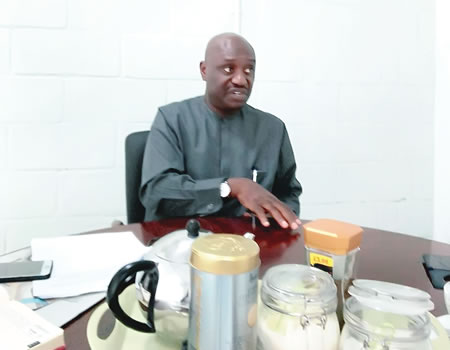Land Use Act was initiated in 1978, as a decree promulgated by the military administration headed by General Olusegun Obasanjo, which was 40 years back. How will you assess the act in today’s Nigeria?
To begin with, Land Decree of 1978, by the military was noble, both in conception and execution to a certain extent and I didn’t see any reason for its revocation for the fact that prior to 1978, how did we hold land in Nigeria? Communities and families held the lands, a situation that stifled development. For example, you have a family with 20 children holding on to a vast land. But when there comes opportunity for development and 19 of them agree with one dissent, what happens? The project cannot take off no matter how lofty was such project, simply because one person differs. But the promulgation of the decree removed this singular aberration.
But can we say that it was a rosy situation since the Act was made as far as land administration in Nigeria is concerned?
Again, according to Chapter 202 of the Laws of the Federation of Nigeria 1990, that amended the Land Use Decree into the Land Use Act, it interpreted the law as an Act to vest all land compromised in the territory of each state (apart from lands vested in the Federal Government or its agencies), solely on the Governor of the state, who would hold such land in trust for the people and would therefore be responsible for its allocation in all urban areas to those who needed it for developmental projects, while similar powers with respect to rural areas are conferred on local governments. This commenced from March 27, 1978.
However, the Act today has posed serious challenges orchestrated by the operators of the law. Land Use Act was designed to create land use registry for the states, unlike before when there was no central land use registry. This development is good for land management, but sadly enough, not much was achieved as a result of laziness by some governors, who doesn’t know, or understand the revenue potentials inherent in proper land management.
Can you explain more on that because one of the most controversial legislations in Nigeria remains the Land Use Act?
Not necessarily controversial, but just like many of our laws that were well crafted with good intentions, but the operators are the problems. As I said earlier, Land Use Act removed obstacles created either by communities or families in whom land were formerly vested, which from all indications, crippled housing projects or other physical developments in the country. But the truth of the matter is that it is time to redefine the Act and make it work as it ought to be. Let me give the example of what is in place in Great Britain. In that country, there is no codified law, but conventions and Parliamentarian Acts not necessarily written down and things are working seamless. So, the problem is not with the Act, but with the operators, and in this case the governors.
How?
Good. Do you know that most of our governors who have the power to manage land are not making use of them productively? Is it not a strange coincidence that some of them depend solely on what comes from Abuja as Federal allocation? Some will stay in Abuja waiting for allocation when lands are there lying fallow. Look at Malaysia, the country depends on Indonesia for sand supply. Sand! Why? Because they don’t have land and look at the development in that country. But here we have everything in abundance, but the cry is there is no resources in my state, my state is poor.
There has been a repeated call for the Act to be removed from the Constitution to make its amendment more realistic and less cumbersome, and that there will be no meaningful growth in the real estate sector if land continues to be under the firm grips of the state governors. What is your take on that?
I said it in the beginning that I support Land Use Act. But having said that, I will also support any amendment that will remove the inherent bottlenecks in the operation of the Act. But back to my position, no matter how good or flexible a law is, the onus still lies on the operators.
Again, I may say that land has become so expensive because unlike in the past, you could buy a piece of land from either the community, an individual or from even a company and you go and register that title at the Land Registry. Once it is registered, it becomes a bankable document.
But the fact still remains that for an investor, buying land from government, though it may not be cheaper, but it’s more secured than from any other sources.
Also, implications of the Land Use Act borders essentially on ownership rights. If one acquired a land without a Certificate of Occupancy (C of O), the land may not necessarily be for that person. All you have is a lease. You never have a free-hold because government can seize that land or property without any form of compensation. The power to do this rests within the Land Use Act, which reads: “All the rights formerly vested in the holder in respect of the excess of the land shall in the commencement of this Act be extinguished and the excess of the land shall be taken over by the Governor and administered as provided in this Act.”
Under the Land Use Act, the governor is responsible for allocation of land in all urban areas to individuals’ resident in the state or to organisations for residential, agricultural, commercial and other purposes while similar powers with respect to non-urban areas are conferred on the local government.






